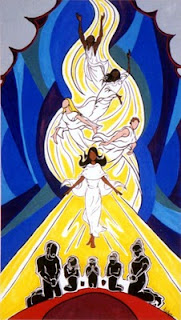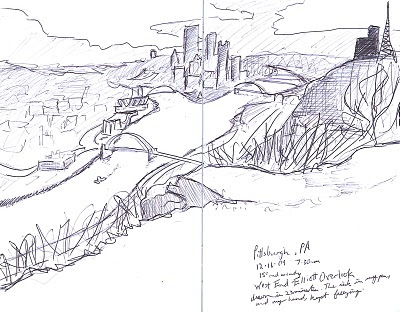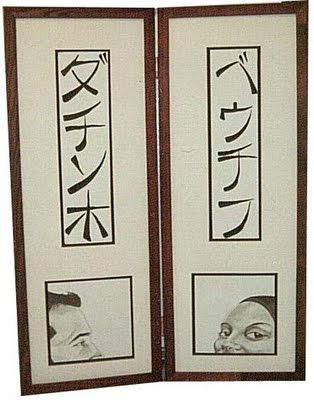
A year ago, some people in a very affluent suburb wanted to do something good and helpful for Christmas. They passed around the hat, collected some money, and made an anonymous donation to a family in the inner city. It was a very generous act, they are truly good people, but was this act thoughtful, or even helpful?
I feel a bit like Scrooge even asking that question. Well maybe it’s the rhetorical nature of the question that has me feeling Grinch-ish, because I already have an answer. No.
This group of people gave the gift to someone they knew of, but did not know. They gave it to me.
Why me? Without asking it was easy to surmise; they first, knew I exist, and second, knew I live in the “inner city”.
They knew of my family’s existence due to our both being part of a larger religious community. My activities in this church often bring me in contact with those who do not attend my regular congregation, so it would be easy for someone who does not know me personally, to have some small familiarity with my name. That would easily combine with their knowledge of the geographic boundaries of my actual congregation, but this is the extent of our intimacy.
These well meaning people have a view of what it means to live in the inner city, and in many cases it is accurate, but they never go there. Not only do they not go there but people who live “there” rarely if ever, venture out. News cameras broadcast reports from the grimiest of places and tell the saddest or most sordid tales, and an image is permanently cast.
This image is not entirely false. I could introduce these people to countless associates of mine with stories worthy of “Extreme Home Makeover”, or more likely” Cops”, either way, people in need of a gift. I am surrounded by those in need. But those are not they to whom the gift was given, it was given to me. At the time I was in the fifth year of a career with a Fortune 500 company, enjoying a nice salary, a regular bonus structure, a company car complete with gas card, and even a healthy expense account. Of those who attend my congregation my family would have surely qualified as one of the least in need of outside assistance. This has made me think a bit.
Many want to help. Many even take steps, especially at this time of year, to do something helpful. I fear most of these efforts are wasted. Maybe not wasted but rather squandered. How can any of us help another without first knowing what help they really need? That is the hard part, identifying the true need. It’s the nitty-gritty, nuts and bolts of helping, it’s the dirty work. Not only is it dirty, but it takes time, more time than December provides.
Maybe it would have been a better idea to have given me a phone call first. I could have passed them along to someone else more deserving, or accepted the gift with the charge to pass it along to someone else.
I would hate for those who have, to stop giving to those who don’t, but we can do better. Let us start thinking things through to the end. Let’s take the next step and make sure we know the situation before we act. Let us try to actually solve the problems we think are out there rather than just make a little dent in them. I know it’s hard. I know most people don’t have the time. I understand. In the end, maybe these folks, while a bit unknowingly, did the best thing.
If you don’t truly know the needy, give to those who do.
I feel a bit like Scrooge even asking that question. Well maybe it’s the rhetorical nature of the question that has me feeling Grinch-ish, because I already have an answer. No.
This group of people gave the gift to someone they knew of, but did not know. They gave it to me.
Why me? Without asking it was easy to surmise; they first, knew I exist, and second, knew I live in the “inner city”.
They knew of my family’s existence due to our both being part of a larger religious community. My activities in this church often bring me in contact with those who do not attend my regular congregation, so it would be easy for someone who does not know me personally, to have some small familiarity with my name. That would easily combine with their knowledge of the geographic boundaries of my actual congregation, but this is the extent of our intimacy.
These well meaning people have a view of what it means to live in the inner city, and in many cases it is accurate, but they never go there. Not only do they not go there but people who live “there” rarely if ever, venture out. News cameras broadcast reports from the grimiest of places and tell the saddest or most sordid tales, and an image is permanently cast.
This image is not entirely false. I could introduce these people to countless associates of mine with stories worthy of “Extreme Home Makeover”, or more likely” Cops”, either way, people in need of a gift. I am surrounded by those in need. But those are not they to whom the gift was given, it was given to me. At the time I was in the fifth year of a career with a Fortune 500 company, enjoying a nice salary, a regular bonus structure, a company car complete with gas card, and even a healthy expense account. Of those who attend my congregation my family would have surely qualified as one of the least in need of outside assistance. This has made me think a bit.
Many want to help. Many even take steps, especially at this time of year, to do something helpful. I fear most of these efforts are wasted. Maybe not wasted but rather squandered. How can any of us help another without first knowing what help they really need? That is the hard part, identifying the true need. It’s the nitty-gritty, nuts and bolts of helping, it’s the dirty work. Not only is it dirty, but it takes time, more time than December provides.
Maybe it would have been a better idea to have given me a phone call first. I could have passed them along to someone else more deserving, or accepted the gift with the charge to pass it along to someone else.
I would hate for those who have, to stop giving to those who don’t, but we can do better. Let us start thinking things through to the end. Let’s take the next step and make sure we know the situation before we act. Let us try to actually solve the problems we think are out there rather than just make a little dent in them. I know it’s hard. I know most people don’t have the time. I understand. In the end, maybe these folks, while a bit unknowingly, did the best thing.
If you don’t truly know the needy, give to those who do.



















